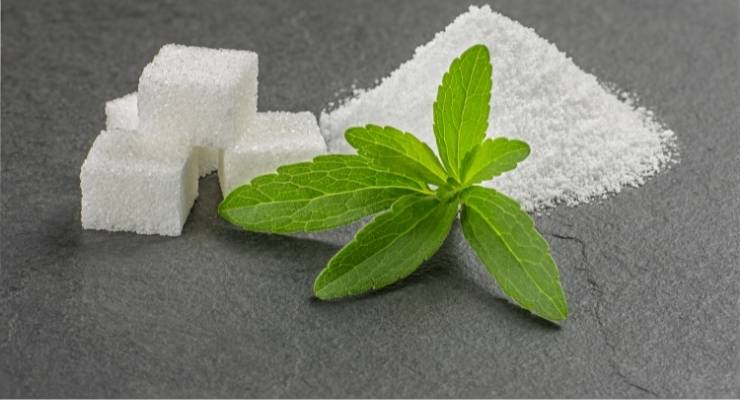09.23.22
Ingredion Incorporated, a global ingredient supplier to the food and beverage industries, recently conducted a life cycle analysis study in order to better understand the sustainability of stevia production. Life cycle analyses quantify potential environmental impacts of a certain product or service, and this proprietary study measured the environmental impact of sweeteners derived from stevia leaves from extraction and processing to distribution, using indicators such as greenhouse gas emissions, land use, water scarcity, and cumulative energy demand.
The global study compared stevia across its full product life cycle compared to caloric options such as high fructose corn syrup, cane sugar, and beet sugar, and aimed to identify opportunities to improve the environmental performance of PureCircle, Ingredion’s stevia portfolio.
“Our latest findings clearly show that all of our stevia production methods consistently outperform sugar across four key sustainability metrics due to recent innovations in Reb M stevia production,” said Kurt Callaghan, global strategic director for sugar reduction at Ingredion. “Reb M has enabled mass market adoption of stevia by delivering great tasting food and beverage products. Our bioconversion and fermentation capabilities will allow the industry to achieve the same great taste at an even more affordable price while dramatically improving the environmental impacts.”
The findings concluded that fermentation and bioconversion technologies have significantly improved the sustainability of Reb M, a stevia extract that is one of Ingredion’s PureCircle sweeteners. Fermented Reb M production reduces negative climate change impact by 82% compared to sugar, while bioconversion shows a 50% reduction, according to the parameters used in the study.
New production methods have scaled Reb M, making it more readily available to food and beverage companies of all sizes for sugar reduction options, Ingredion reports. Its life cycle assessment is undergoing peer review currently in order to become compliant with the International Organization for Standardization (ISO), an independent organization and standardization process offering food and beverage manufacturers credible data. This validation will help the company deliver tools to help manufacturers understand the environmental impacts of their sweeteners.
The global study compared stevia across its full product life cycle compared to caloric options such as high fructose corn syrup, cane sugar, and beet sugar, and aimed to identify opportunities to improve the environmental performance of PureCircle, Ingredion’s stevia portfolio.
“Our latest findings clearly show that all of our stevia production methods consistently outperform sugar across four key sustainability metrics due to recent innovations in Reb M stevia production,” said Kurt Callaghan, global strategic director for sugar reduction at Ingredion. “Reb M has enabled mass market adoption of stevia by delivering great tasting food and beverage products. Our bioconversion and fermentation capabilities will allow the industry to achieve the same great taste at an even more affordable price while dramatically improving the environmental impacts.”
The findings concluded that fermentation and bioconversion technologies have significantly improved the sustainability of Reb M, a stevia extract that is one of Ingredion’s PureCircle sweeteners. Fermented Reb M production reduces negative climate change impact by 82% compared to sugar, while bioconversion shows a 50% reduction, according to the parameters used in the study.
New production methods have scaled Reb M, making it more readily available to food and beverage companies of all sizes for sugar reduction options, Ingredion reports. Its life cycle assessment is undergoing peer review currently in order to become compliant with the International Organization for Standardization (ISO), an independent organization and standardization process offering food and beverage manufacturers credible data. This validation will help the company deliver tools to help manufacturers understand the environmental impacts of their sweeteners.




























